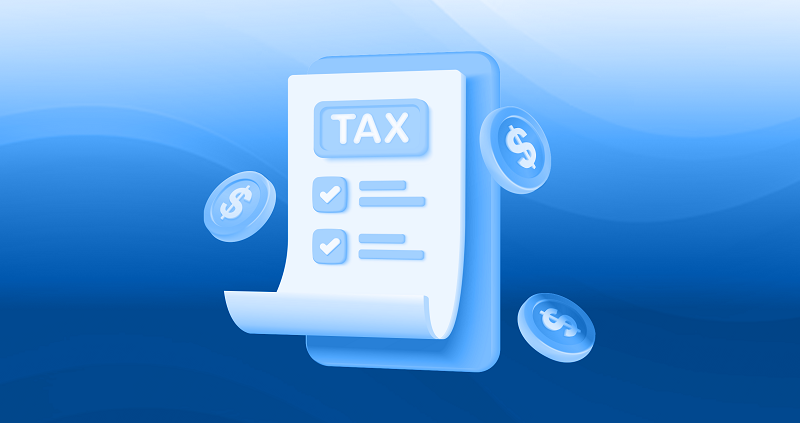Can you trust financial advisors? Here’s what to look out for
Not all financial advisors are created equal. Learn how to spot trustworthy professionals by looking for key certifications, fiduciary duty, and strong communication.
Not all financial advisors are licensed or certified. Anyone can use the title, so background checks are essential.
Check for credentials: Look for well-known credentials like Certified Financial Planner™ (CFP®), Chartered Financial Analyst® (CFA®), or Certified Public Accountant, and always confirm fiduciary status.
Communication is key: Strong communication and transparency are just as important as qualifications when evaluating trustworthiness.
Are financial advisors trustworthy?
Trust is one of the most essential parts of building a healthy relationship, whether a romantic, friendly, or financial. When choosing a financial advisor, you want to ensure they are someone you can trust, as they will be managing your money and financial matters. However, not all financial advisors are created equal, so you may be asking yourself, “Can financial advisors be trusted?”.
In short, it depends. Since there is no legal regulation of the term financial advisor, and no certification or testing is required to become one, as a client you might not always know who you’re working with. Therefore, if you are not careful about who you hire, you could end up working with a deceitful advisor and potentially lose money. However, certifications and earned titles do exist, which can increase the credibility and potential trustworthiness of a financial advisor. Although it is important to do your own background research when looking for an advisor, there are also some credentials to look out for to help better guide your selection.
Titles and certifications to look for
While anyone can call themselves a financial advisor, certain titles and certifications can set advisors apart, making them more credible and ensuring that they will be working in the best interest of the client. Some designations carry more weight due to rigorous education, ethical standards, and continuing education requirements.
Here are some of the most reputable titles and certifications for financial advisors:
Certified Financial Planner™ (CFP®): This is one of the most trusted and comprehensive certifications in the financial advising industry, as well as one of the most widely recognized. It is regulated by the CFP Board, and granted once an advisor has successfully completed extensive training in financial planning, passed a comprehensive exam, and agreed to uphold strict ethical standards.
Chartered Financial Analyst® (CFA®): This credential is recognized globally and is considered the gold standard in investment management due to its difficulty and prestige. It is regulated by the CFA Institute and requires deep expertise in investment analysis, portfolio management, and ethics. It is commonly used by asset managers and investment professionals.
Chartered Financial Consultant® (ChFC®): This designation demonstrates a strong indicator of comprehensive financial knowledge, especially in personal finance. It is regulated by the American College of Financial Services and is similar to the CFP®, but with more electives. It covers areas such as insurance, income taxes, retirement, and estate planning.
Certified Public Accountant (CPA): This is one of the oldest and most established financial credentials. Like CFPs®, CPAs are also widely recognized, but CPAs are specialized towards tax matters. To become a CPA, certain college courses and a bachelor’s degree are required, as well as successfully passing a rigorous exam. CPAs must also uphold fiduciary standards.
Personal Financial Specialist (PFS): The PFS credential combines tax expertise with broader financial planning skills, geared towards complex tax-focused needs. It is regulated by the American Institute of CPAs (AICPA) and is essentially a CPA with additional financial planning expertise.
Fiduciary Status: While not a certification, fiduciary status is critical, as fiduciaries are legally obligated to act in the best financial interest of their clients. Not all financial planners are fiduciaries, but your advisor should be able to verbally confirm this.
You can also use official sites like FINRA BrokerCheck or SEC Investment Adviser Search to verify certifications. You might want to note that certifications or designations don’t immediately make someone trustworthy, but they can help you find a more reliable financial advisor. It can also help ensure you are able to take legal action in the event that malpractice leads to any financial damage.
The importance of communicating with your financial advisor
As a client, the way your financial advisor communicates with you (or doesn’t) can also say a lot about their trustworthiness.
You can ask yourself questions such as:
Do I feel heard when speaking with my advisor?
Can I trust my financial advisor?
Is my advisor actively staying on top of our communication?
Am I meeting with my financial advisor enough to build a trustworthy advisor-client relationship?
Do I feel comfortable with the advice my advisor is giving me?
Do I feel comfortable with this person managing my finances?
If you answer no to any of these, you might want to rethink who you’re working with or voice your concerns to clear up any misunderstandings. Trust is also rooted in good communication, so you want to ensure you are clearly and regularly communicating with your advisor to build a strong relationship with them.
Clear communication with your financial advisor can also help you understand their work ethic, such as their payment structure, morals and core values, and levels of expertise. It is important to understand how your advisor is being compensated to avoid potential conflicts of interest and to ensure they are working in your best interest. Finding out their core values can also help you determine if they are a person of integrity, increasing their trustworthiness. Finally, you also want to ensure that they have expert knowledge in the area you need help with.
If an advisor does not show transparency when you voice concerns or ask questions as a client, this can not only speak to their character but also to their practice.
Bottom line
Deciding to trust someone with your money is not a matter that should be taken lightly. If you are still asking yourself, “Can you trust a financial advisor?”, you might want to remember that not all financial advisors are created equally. It is important to do your background research and ask a lot of questions to determine if your financial advisor is trustworthy. Taking measures to protect yourself as a client can help prevent you from potentially being scammed or ending up working with a questionable advisor.
If you are looking for other ways to grow your wealth, Raisin is here to help. The Raisin marketplace gives you access to various high-yield savings products with competitive interest rates to make the most of your money. One easy-to-use dashboard gives you access to multiple savings options. Sign up today and start maximizing your savings potential!
The above article is intended to provide generalized financial information designed to educate a broad segment of the public; it does not give personalized tax, investment, legal, or other business and professional advice. Before taking any action, you should always seek the assistance of a professional who knows your particular situation for advice on taxes, your investments, the law, or any other business and professional matters that affect you and/or your business.


